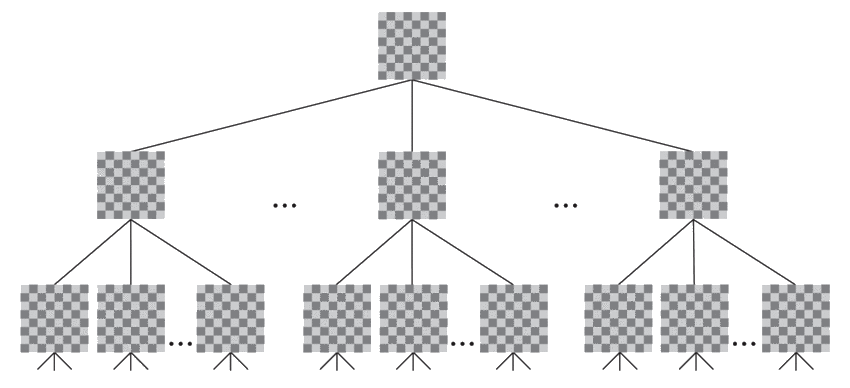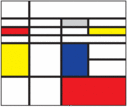Video lecture: stream download
- Turing Test
- Can a computer think?
- Turing's answer: Can it respond well enough to fool an expert?
- Not yet.
- Eliza
- An early, and rather simple, dialog program.
- There is a version here. Google will give you many others.
- Might look real for a while, but doesn't take too long to see that the program doesn't understand.

- Game playing.
- Uses a tree of boards.
- Computer searches tree for the best result.
- Parallel computers makes the search faster.
- Historical study helps trim the explosion.
- Chess
- Kasparov beat Deep Blue in 1996.
- Improved Deep Blue won in 1997.
- Winning at chess = intelligence?
- The chess computer is very specialized.
- Chess is something computers are good at.
- The language skills of a normal 3-year-old are far beyond what a computer can do.
- Is it the computer that's intelligent, or the engineers who built it?
- Watson
- IBM computer which plays (and wins) Jeopardy.
- Much more human-like problem.
- 2800 machines operating in parallel.
- Studied many past questions to understand how the computer should parse them.
- Forms multiple possible answers and rates them by certainty.
- Played quite well
- Left the human champions in the dust.
- But famously failed on Its largest airport is named for a World War II hero, its second largest for a World War II battle. (I wouldn't have gotten it, either.)
- Someone typed in the questions. Didn't have to understand speech.
- Obviously more human-like, but questions still rather structured.
- Questions were typed to Watson; it did not have to understand the spoken questions.
- Are computers creative?

- Programs to create pictures.
- High-level rules + random number generation.
- Can creativity follow rules, or is it making the rules?
- Universality.
- All general-purpose computers can solve the same set of problems.
- If one computer can do it, any other computer can do it, in principle,
but may be practical problems.
- The other may be too slow to finish in a reasonable amount of time.
- The other may not have enough memory.
- The problem may not have been programmed there.
- Complexity.
- Some problems are harder than others.
- Algorithms are classified by order on the size of the input.
Think proportional, though that's not exactly the definition- Simple linear searching is O(n). The binary search is log n.
- Simple sorting algorithms are O(n2). Better ones are n log n.
- NP-complete problems
- Includes some useful problems, such as the shortest (or cheapest) route to visit n cities.
- The NP-complete problems are thought to unsolvable better than 2n.
- This makes them pretty much impractical forever.
- Approximate solutions are often possible and adequate in practice.
- Impossible problems.
- Some cannot be solved: The halting problem.
Mostly of theoretical interest, but does mean some automated debugging tools are literally impossible to build. - Generally believed that no computer can solve any of these problems.
- Some cannot be solved: The halting problem.